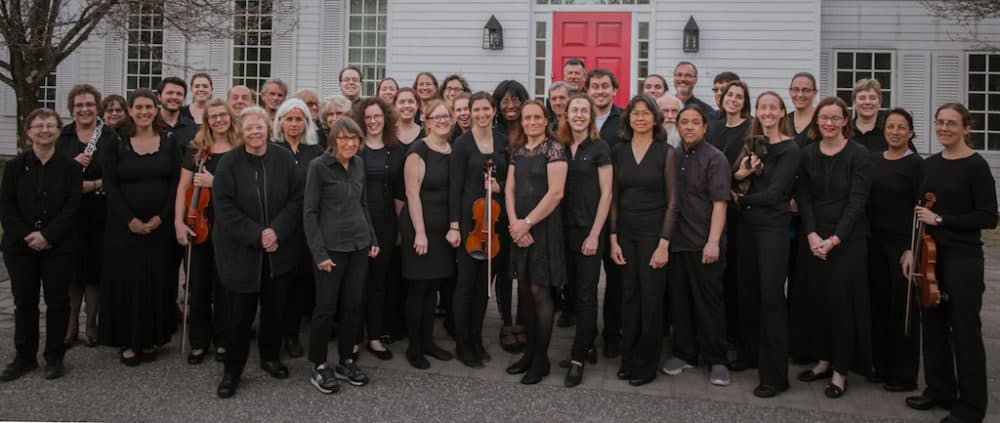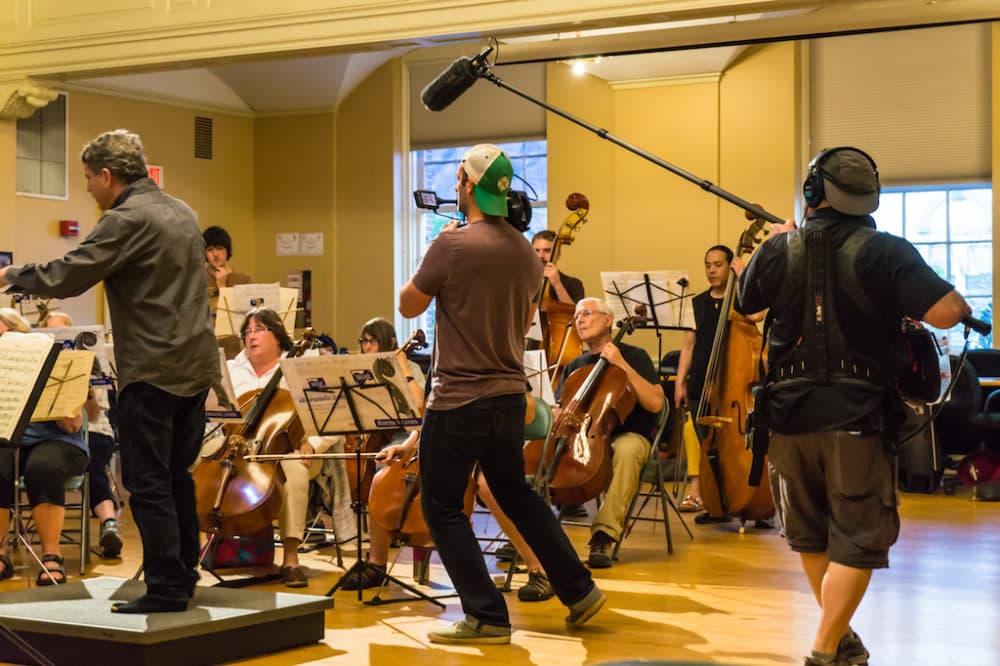Advertisement
Documentary Charts The Transformative Work Of An Orchestra For Musicians With Mental Illness
Music has the power to transform — not just for listeners but for musicians too. Just ask the members of the Me2/Orchestra, billed as the only orchestra in the world created by and for people living with mental illnesses.
The orchestra’s co-founder and conductor, Ronald Braunstein, knows firsthand the painful stigma of mental illness. After graduating from Juilliard in 1979, Braunstein became the first American to win the prestigious Herbert von Karajan Prize. Six years later, at age 30, a bipolar diagnosis effectively ended his conducting career.
After years of teaching, Braunstein moved to Burlington, Vermont, for a position with a local symphony. The job did not last, but Braunstein met orchestra administrator Caroline Whiddon, and they later married. Together they founded Me2/Orchestra in 2011 to provide a place for Braunstein to conduct again.
Musicians living with mental illnesses such as schizophrenia, depression and bipolar disorder have found homes with Me2/. (The orchestra chose its name before the Me Too movement.) There are now affiliates in Boston, Manchester, N.H., Portland, Ore. and another underway in Denmark.
“The growth has been amazing and totally by word of mouth,” says Braunstein. “We are coming out of the shadows; being unafraid.”

The Me2/Orchestra takes center stage in the documentary “Orchestrating Change” which premieres nationally on the WORLD Channel September 5 and 6. Public television stations across the country will air the film throughout the fall.
Directors Margie Friedman and Barbara Multer-Wellin follow the formation of the Boston Me2/ ensemble which now boasts more than 60 musicians; they focus on several members of the Burlington and Boston orchestras, creating intimate portraits of their travails and triumphs. The film culminates in a major concert at the Flynn Center for the Performing Arts in Burlington where Braunstein conducts the orchestra in an ambitious program of works by Beethoven, Brahms and Bizet.
We are coming out of the shadows; being unafraid.
Ronald Braunstein
For Braunstein, that performance represented personal and professional redemption. “My last concert was at the Flynn. I thought I’d never conduct again,” he says. "Over the course of the next 10 years, we built these two orchestras and came back to perform at the Flynn so it has enormous emotional significance.”
Whiddon met Friedman after discovering her documentary “Conducting Hope” about a men’s prison choir in Kansas. “She wanted to know about our story, then she reached out to Barbara [Multer-Wellin] about working together on the project and it took off from there,” says Whiddon.
Shooting began in Burlington in 2015 before Braunstein and Whiddon had even begun to develop the Boston branch of the Me2/Orchestra.

“It was breathtaking, their commitment to this project,” says Braunstein of the filmmakers. “They followed us over a long period. If [one of the musicians] had a breakthrough, they’d get on a plane and they were here the next day with their crew. And they did that throughout the process.”
The film captures a pivotal moment when the newly formed Boston Me2/Orchestra performs at South Station in celebration of Johann Sebastian Bach’s birthday. “It said a lot about us that we started in that way, not in a concert hall but in a train station,” Braunstein says. “People were not coming in with ties and jackets paying four-hundred dollars. It was just people coming off the train, exhausted from the day. They stood there and listened to the music. It was an amazing experience.”
The orchestras are open to all skill levels. “I know how to work with the really experienced players and get them to play their best. For the less experienced, it’s more about encouraging and helping them feel confident about themselves.”
Advertisement
Beyond creating music, the Me2/Orchestra is a support and social group with Braunstein serving as maestro, teacher and friend. “The orchestra functions more like a family,” he says. “It’s not a job; they come because they want to be there, in a safe environment, where people are not judging one another.”
Since COVID-19 has curtailed rehearsals and performances, Braunstein, Whiddon and the musicians are meeting regularly over Zoom. “We stay alive through love. Every week we have sessions to talk about psychological issues, family problems, landlords,” says Braunstein.
“The most important thing is for the conductor to be one with the orchestra. That only happens because I am nursing them and supporting and loving them,” he says.